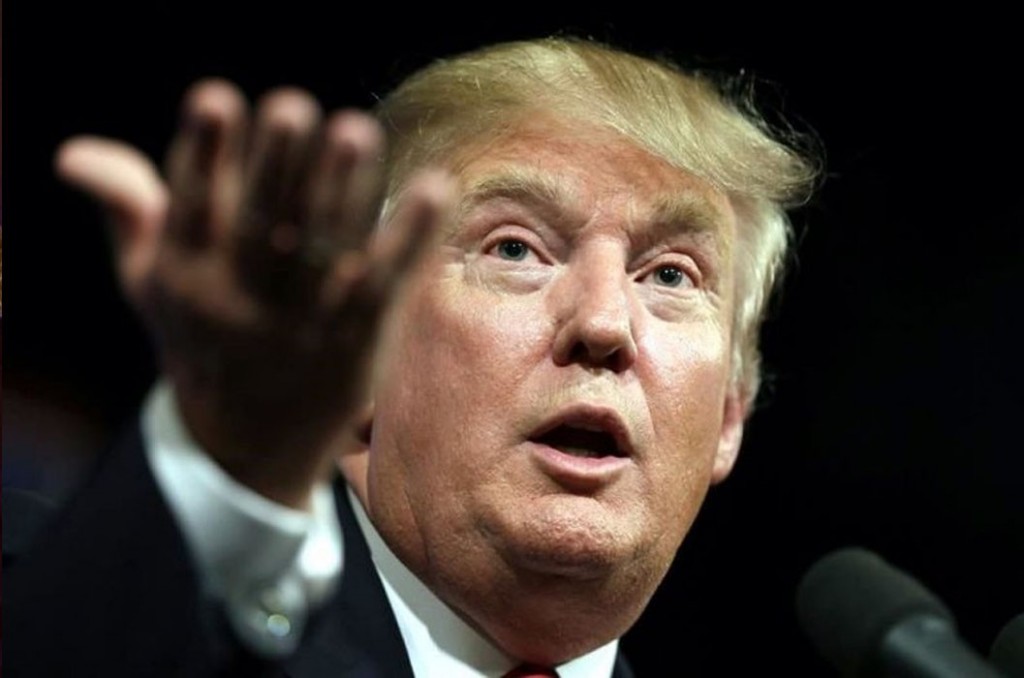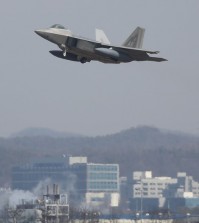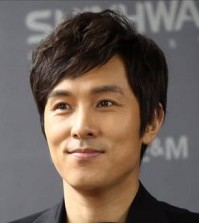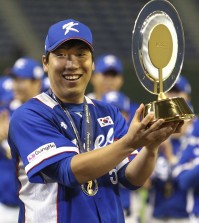- California Assembly OKs highest minimum wage in nation
- S. Korea unveils first graphic cigarette warnings
- US joins with South Korea, Japan in bid to deter North Korea
- LPGA golfer Chun In-gee finally back in action
- S. Korea won’t be top seed in final World Cup qualification round
- US men’s soccer misses 2nd straight Olympics
- US back on track in qualifying with 4-0 win over Guatemala
- High-intensity workout injuries spawn cottage industry
- CDC expands range of Zika mosquitoes into parts of Northeast
- Who knew? ‘The Walking Dead’ is helping families connect
Donald Trump criticizes S. Korea as taking a ‘free ride’ from the US
By Kang Seung-woo
Republican presidential hopeful Donald Trump’s remark that Korea is getting a free ride because it is protected by the U.S. military is triggering controversy.
Critics of the free-speaking billionaire say that his views come from his lack of knowledge about the situation here.
While accusing Saudi Arabia of enjoying a security free ride on U.S. taxpayers’ expense during a campaign speech in South Carolina on Tuesday, Trump suggested that Korea gives nothing in return for the presence of the U.S. Forces Korea (USFK).
“South Korea,” he said before a member of the audience shouted the word “crazy.”
“Who said that? Stand up, stand up. He said it’s crazy. It’s true. It’s true. It’s crazy. They make a billion dollars a day.”
In 2011 and 2013, the real estate mogul made similar remarks, condemning Korea for paying the United States nothing.
“Every year, Korea pays nearly 1 trillion won (US$860 million) for the cost of stationing American troops here,” said Lee Mi-hyeon, director of peace and disarmament at the People’s Solidarity for Participatory Democracy.
“In addition, the government benefits them in using military bases.”
In January of last year, Seoul and Washington renewed the Special Measure Agreement (SMA) on sharing the financial burden of keeping some 28,500 American troops on Korean soil, and Korea paid 920 billion won ($790 million) for 2014.
“He has made the remarks without knowledge about USFK. Of course, the American troops serve here to defend South Korea against North Korea, but we also make sacrifices to some extent,” Lee said.
Park Hyun-wook, 37, a retired Army officer, said, “The stationing of USFK is a win-win for both Korea and the U.S., citing the latter’s relocation plan to Pyeongtaek, Gyeonggi Province in 2016.
“In addition, we have purchased U.S. military equipment on the back of the ROK-U.S. alliance,” he said.
Although Trump’s criticism seems to be a noise-making episode, Park Won-gon, an international studies professor at Handong University, said that his remark may reflect Washington’s “unofficial” complaint about Korea.
“Trump mentioned Saudi Arabia and Korea, both of whom the U.S. government believes are not aggressive in their national defense policy,” Park said.
The professor said that Sunni Saudi Arabia is not active in the U.S. fight against the Islamic State of Iraq and the Levant (ISIS), which is an extremist Sunni group.
In addition, the U.S. is pushing for a trilateral alliance with Korea and Japan in its rebalancing policy, aimed at containing a rising China in the Asia-Pacific, but ongoing frayed ties between Seoul and Tokyo prevent the U.S. from fully carrying out the policy.
Despite U.S. pressure, President Park Geun-hye has yet to sit down with Japanese Prime Minister Shinzo Abe, who has attempted to whitewash Japan’s wartime aggression.













![일본 사도광산 [서경덕 교수 제공. 재판매 및 DB 금지]](http://www.koreatimesus.com/wp-content/uploads/2024/07/PYH2024072610800050400_P4-copy-120x134.jpg)


